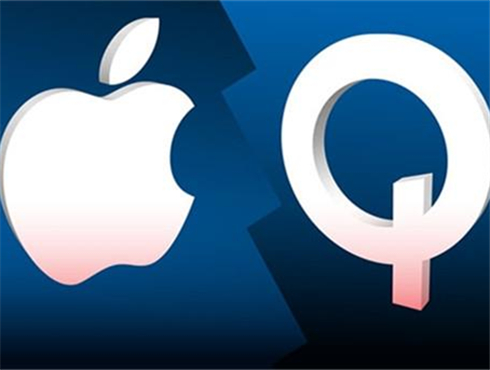[Global Network Technology Reporter Chen Jian] The patent litigation between Qualcomm and Apple continues. The latest news is that Qualcomm filed three new patent lawsuits against Apple, claiming that Apple’s iPhone infringed on Qualcomm’s 16 patents. .

Just this Wednesday, Apple had just sued Qualcomm and infringed Apple's patent for Qualcomm's Snapdragon mobile phone chip.
In the period of rapid development of smart phones, Qualcomm and Apple have always been good partners, but Apple’s own development of the chip business and Qualcomm’s patent advantages have created irreconcilable contradictions.
Apple has been in a strong position in the supply chain, and in the chip field has been hoping to get rid of the restrictions of suppliers and control the baseband of the chip itself. Samsung, Huawei’s chips, which currently include the world’s second-third-most mobile phone, have also been doing so. Apple wants to maintain its advantages in mobile phones. It has already freed itself from graphics chips provided by Imagination on the GPU in its own chips, so it also hopes to get rid of Qualcomm's constraints on the baseband.
Currently used on the iPhone is Qualcomm and Intel's baseband. It is reported that Apple will use Intel and MediaTek's baseband on future iPhones. However, this is only an excessive measure.
Qualcomm is the overlord of current baseband patents. Even the latest iPhone X this year, most of the modems it ships with come from Qualcomm. Qualcomm executives also publicly stated that all Apple products are based on our baseband technology and will continue to be used in the future. In the 2G and 3G era, Qualcomm almost monopolized the entire baseband chip market. Although in the 4G era, there is a strong rise in chip manufacturers such as Samsung LSI, MediaTek, Intel, Spreadtrum, and Hass, but Qualcomm still maintains more than 50% of the benefits of the global baseband chip industry. Take Apple's case, before Apple has not sued Qualcomm's monopoly, Apple will pay 5% of the patent licensing fee to Qualcomm for every iPhone handset.
However, Qualcomm’s high royalties have also been blamed by various mobile phone manufacturers. Once many domestic manufacturers and Samsung and other companies have been in court against Qualcomm.
2017 was a year when Qualcomm and Apple broke. In January, Apple initiated a patent litigation against Qualcomm in the United States District Court for the Southern District of California, suing Qualcomm for its monopoly of the wireless chip market, and filed a claim for Qualcomm’s nearly one billion US dollars.
Shortly thereafter, on January 25th, Apple filed a lawsuit in Beijing against the Beijing Intellectual Property Court, claiming that Qualcomm abused its position in the chip industry and claimed 1 billion yuan.
In April this year, Qualcomm submitted a statement of defense to the Federal District Court for the Southern District of California and launched a counterclaim against Apple. It claimed that "Without Qualcomm's technology, the iPhone could not be successful."
Subsequently, Qualcomm said in late April that Apple will not pay royalties to Qualcomm for handsets sold in the first quarter of this year. Until the legal disputes are resolved, Apple will not pay any subsequent payments. Apple subsequently announced that it would stop paying royalties to Qualcomm for patent fees. In September, Qualcomm applied to ban the sale of iPhone products in China.
Every few months there will be news of mutual reciprocal action, and the focus of the lawsuit is that Apple believes that Qualcomm’s fees are too high, and that Qualcomm has patented Apple’s mouth.
However, as a beneficiary of patents, Qualcomm has always spent patent fees on the research and development of communications technologies, which has greatly improved the convenience of people using mobile phones. Even if Apple wins the lawsuit and later develops its own baseband chip, it still cannot escape Qualcomm’s large number of patent litigations.
Nantong Boxin Electronic Technology Co., Ltd. , https://www.ntbosen.com
